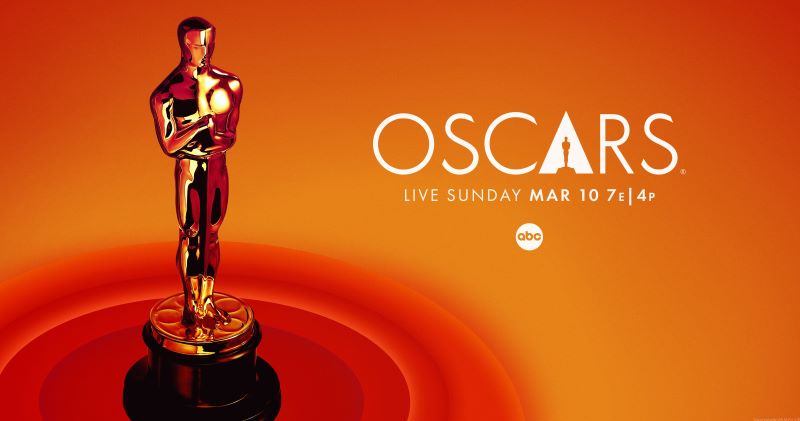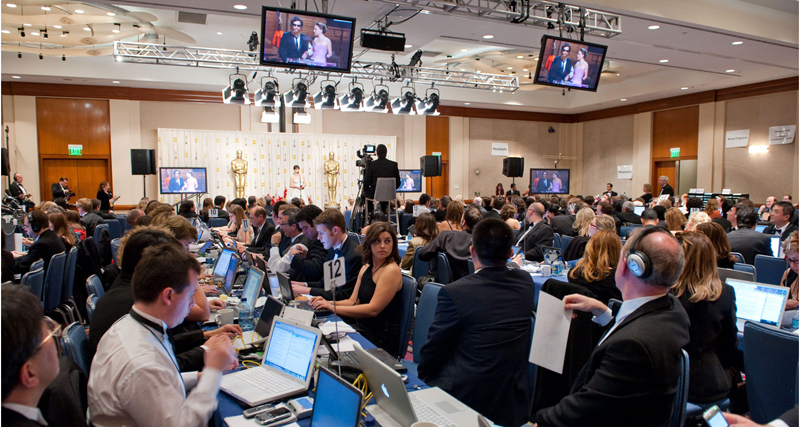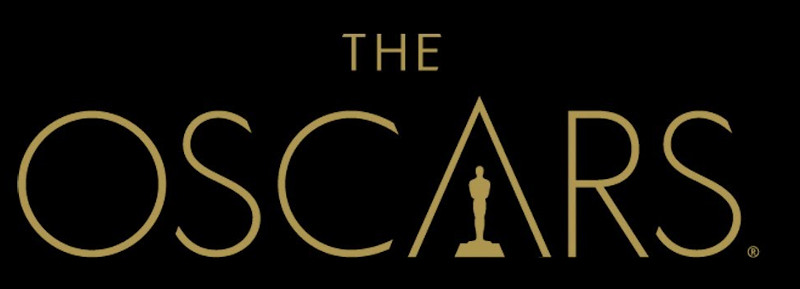
The movie awards industry, whose apex will be the Oscars telecast coming March 10, is buffeted by isolated storms though the promotional juggernaut keeps cruising along. It’s estimated that several hundred million dollars are spent each year on awards marketing.
A film critic organization is fighting allegations of vote tampering, the bellwether Golden Globes is in rehab, and icon Robert De Niro fumed publicly that he wasn’t able to deliver anti-Trump comments at an awards stump speech. Finally, the mighty Oscars themselves continue a decades-long battle to try to reverse declining TV audience viewing of its splashy Academy Awards telecast.
“The Oscar campaign season generates hundreds of millions of dollars in economic activity each year,” says the second edition of academic/business book “Marketing to Moviegoers” third edition. “That includes other awards that get spillover, advertising on awards telecasts, business-to-business advertising, parties, screenings, travel, and management overhead, such as executive salaries.”
“Marketing to Moviegoers” continues: “The economic spillover includes private parties staged by film distributors; industry organizations, such as Women in Film; other film-industry entities, such as talent agencies; and media, such as magazines, which each cost tens of thousands or in some cases hundreds of thousands of dollars.” Some of those awards marketing costs are offset by sponsorships from corporate America seeking to snag some Oscars glow.

As for recent travails, to deal with charges of vote tampering, the Critics Choice Association (CCA) notified about 10% of its 600 members who are also members of the Hollywood Creative Alliance (HCA) that they will be allowed to vote awards in only one of those organizations. CCA used to be known as the L.A. Online Film Critics Society.
A Hollywood Reporter article by Scott Feinberg says that “CCA’s board said that it had concluded this step was necessary because it had uncovered ‘evidence that a representative of the HCA has improperly suggested to at least one studio — and we suspect more — that it could influence Critics Choice Awards voting [and so CCA acted to] protect the integrity of our awards.’” In a late response, the HCA filed a defamation lawsuit against CCA over the matter.
Elsewhere, the Golden Globe awards, conferred by a historically insular Hollywood press association, got smacked down in 2021 because of a dearth of black journalists as members. Also, a Los Angeles Times newspaper expose revealing rampant influence peddling.
Under new management, Golden Globes award telecast got decent ratings on CBS Television Jan. 7 with 9.4 million live + same-day viewers (longtime Globes broadcaster NBC Television exited the relationship last year). The awards drew 18 million TV viewers in its heyday.

The Golden Globe shot to prominence decades ago because of being an accurate, early harbinger of later Oscar winners, setting the buzz for front-runners. It remains to be seen if the overhauled awards retain that golden Oscars touch.
Talent sometimes chafes in public when on awards pedestals, which also kicks up storms. For example, in November, Robert De Niro “was gearing up to slam Donald Trump at Monday’s Gotham Awards, but when he took the stage he discovered that the speech he planned to give had been altered,” says a Variety story. The suspected reason: Apple, which is the producer of De Niro’s movie “Killers of the Flower Moon,” asked that the political bashing be deleted. “Spokespeople for the Gotham Awards and Apple declined to comment,” ends the Variety story.
Even the granddaddy of movie awards, the Oscars, is not immune. Its prime-time ABC Television broadcast, whose TV license fee is a financial bedrock, is suffering sharp audience erosion.
Low-grossing arty films frequently nab the Oscar Best Picture over the past two decades, such as “Nomadland” in 2021, pulling a minuscule $3.7 million in domestic boxoffice. Last year, the domestic ABC Television awards averaged 19.9 million total viewers in +7 days ratings; as recently as 2014, the Oscars drew 43.6 million viewers.
To make the ABC Television awards telecast more attractive to viewers, there have been on-and-off plans to announce winners of what are deemed minor Oscar categories off-air. This always ignites a firestorm.
The organization’s then-president wrote to members in 2022 that “we must prioritize the television audience to increase viewer engagement and keep the show vital, kinetic, and relevant.” ABC Television pays $75 million a year for its domestic awards telecast rights and that sum is a pillar of funding for the Academy of Motion Picture Arts & Science (AMPAS), which confers the Oscar.
And there was a modest uproar when Oscar nominations were announced Jan. 23 because the top actor of 2023’s leading boxoffice film, “Barbie,” was left out. Margot Robbie was snubbed for best actress. Though the movie is based on a toy doll line, the musical comedy was lauded for artistic excellence and received eight nominations in other categories, including Best Picture. There was also a bad reaction to excluding “Barbie” director Greta Gerwig, though she was nominated for best director previously.

“Oscar voters annually choose spinach over sweets,” writes Steve Gaydos in Variety, in explaining why “Barbie” faced an uphill battle for Academy Awards. “They like their movies serious and meaningful, and their actors tortured by real world woes such as physical disabilities, addictions, mental illness and all the oppressions and injustices that our mad mad world has to offer.”
These are just the latest. In 2016, Sundance Film Festival darling “Birth of a Nation” suffered deflated awards prospects when past rape allegations against two of its prime filmmakers surfaced. The film about an 1831 slave rebellion became instantly radioactive. Fox Searchlight Pictures had paid $17.5 million for distribution rights in a lively Sundance auction, thinking it would be an awards magnet. Instead, it was an awards pariah.
At the founding of AMPAS in 1927, what would become the Oscars awards was minor consideration. But when launched with modest expectations, the Oscars were an immediate success that the organization quickly moved to center stage.
Related content:
Leave a Reply